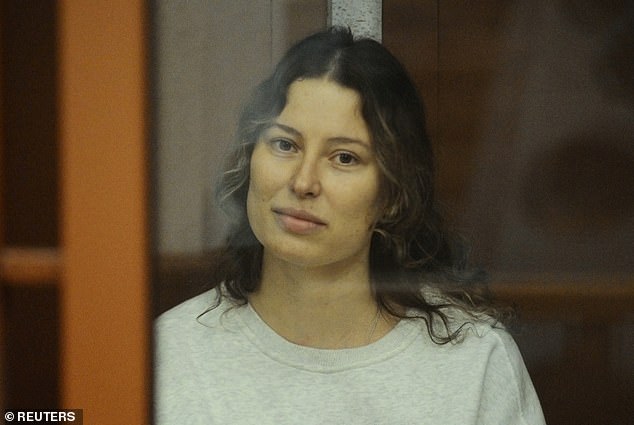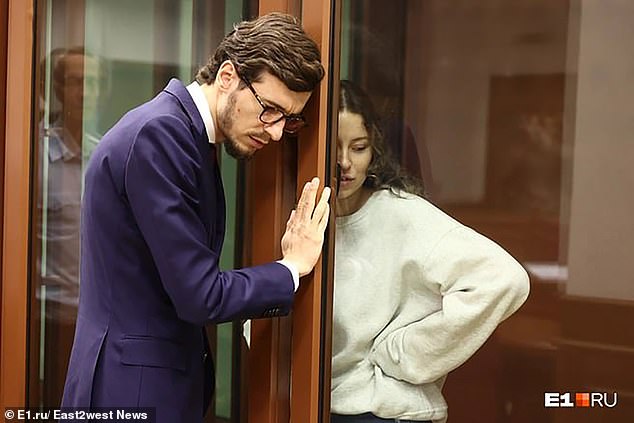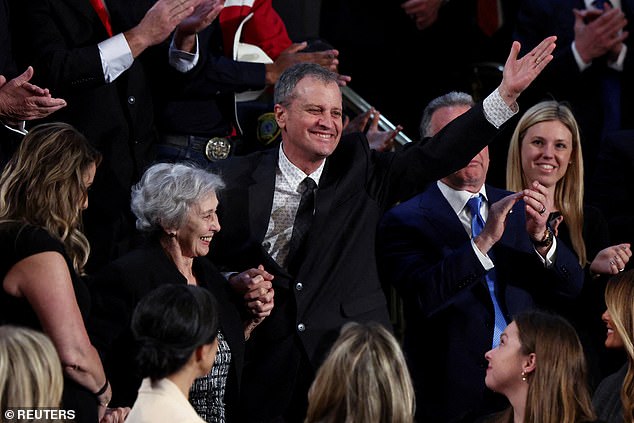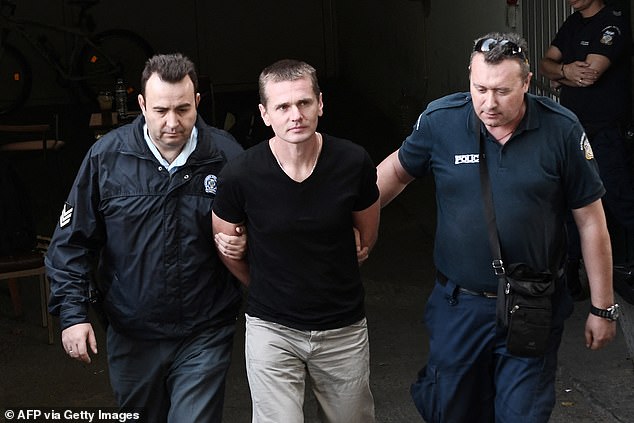Russia has released jailed American ballerina Ksenia Karelina in an early morning prisoner swap between Vladimir Putin and Donald Trump‘s respective intelligence agencies.
The early morning swap in Abu Dhabi, first reported by the Wall Street Journal, is the latest sign of a deepening relationship between the two superpowers.
A dual Russian-American citizen, Karelina was sentenced to 12 years in prison in August 2024 after a Russian court found her guilty of treason for donating just $51.80 (£40) to a Razom, a New York-based charity supporting Ukraine.
The US maintained she was wrongfully detained along with several other American citizens and launched a diplomatic campaign for their release.
The Los Angeles spa worker was arrested in February 2024 while visiting family in Yekaterinburg.
After discovering the donation to Razom on her phone, the FSB security service accused her of collecting funds for the benefit of the Ukrainian army.
Karelina’s overjoyed father, Pavel, told how he received a call from his daughter to confirm she had been released and was returning to the States.
‘We are beside ourselves with happiness,’ said Pavel, 56, a service company director from Yekaterinburg.
‘The first seconds of our chat were all pure emotions, I can’t even remember what we were saying, it was like one explosion of happiness.
‘A big thank you from the bottom of my heart to President Trump, and to President Putin, because I guess that deal must have involved them both,’ he said.
‘We didn’t even have time yet to think how to celebrate Ksenia’s freedom, but yes, of course, we will be celebrating.’

A dual Russian-American citizen, Karelina was sentenced to 12 years in prison in August 2024 after a Russian court found her guilty of treason for donating just over $50 to a New York-based charity supporting Ukraine

Karelina was sentenced to 12 years in a Russian penal colony

Karelina was branded an American spy but the US has now secured her release

The Los Angeles spa worker was arrested in February 2024 while visiting family in Yekaterinburg

Karelina’s overjoyed father, Pavel, told how he received a call from his daughter to confirm she had been released and was returning to the States
In exchange for Karelina, America released Arthur Petrov, a German-Russian citizen, who was arrested in 2023 in Cyprus for allegedly exporting sensitive microelectronics.
Prosecutors alleged he had used a Cypriot company to procure the American technology under the guise of using them for fire security systems, then shipped them to a company in St. Petersburg that supplies the Russian military.
Petrov had not been sentenced.
CIA Director John Ratcliffe, who was reportedly involved in prisoner negotiations with FSB Director Alexander Bortnikov, greeted Karelina at the airport in Abu Dhabi where the exchange took place.
He told the WSJ: ‘Today, President Trump brought home another wrongfully detained American from Russia.
‘I’m proud of the CIA officers who worked tirelessly to support this effort, and we appreciate the Government of the United Arab Emirates for enabling the exchange.’
‘Today, the United States welcomes the return of American-Russian ballerina Ksenia Karelina,’ national security adviser Mike Waltz said in a statement.
‘President Trump and his administration continue to work around the clock to ensure Americans detained abroad are returned home to their families.’
US secretary of state, Marco Rubio, said on X: ‘American Ksenia Karelina is on a plane back home to the United States. She was wrongfully detained by Russia for over a year and President Trump secured her release. [Donald Trump] will continue to work for the release of ALL Americans.’
Karelina’s Russian lawyer Mikhail Mushailov said he only knew about her release when he was contacted by Ksenia’s family.
‘She contacted her relatives, who contacted me,’ he said. ‘She was on a plane, flying from the Arab Emirates to the United States.’
Karelina’s release marks the second prisoner swap between the US and Russia since Donald Trump took office in January.
Russia in February freed Marc Fogel, a schoolteacher and former employee of the US embassy in Moscow.
Fogel had served three and a half years of a 14-year sentence for drug smuggling after being caught in possession of a small amount of marijuana.
In exchange, Washington released Alexander Vinnik, a convicted Russian cybercriminal who had pleaded guilty in a US court to conspiring to launder money.
At least 10 other Americans remain behind bars in Russia on various charges, hoping their government can secure their release.
They include Stephen Hubbard, a 73-year-old native of Michigan jailed in October for nearly seven years on charges that he served as a mercenary in Ukraine.
Hubbard had been living in the Ukrainian town of Izium and was arrested after Russian forces took control of the city in 2022.
His relatives rejected claims that Hubbard served for Ukraine, pointing to his advanced age. He was designated in January as wrongfully detained.
Gordon Black, an active duty US staff sergeant based in South Korea, was detained last May in Russia’s Far East on suspicion of stealing money from his Russian girlfriend.
A court in June found Black guilty of stealing 10,000 roubles ($104) from the woman and threatening to kill her, sentencing him to three years and nine months in prison.

Marc Fogel, a US man who was detained in Russia and freed in a prisoner exchange in February, puts on his cap before throwing out a ceremonial first pitch before the Pittsburgh Pirates’ home opener baseball game, Friday, April 4, 2025

Marc Fogel, an American history teacher who was detained in Russia and Steve Witkoff, U.S. Special Envoy to the Middle East reacts during US President Donald Trump’s speech to a joint session of Congress

The United States has released Russian cryptocurrency kingpin Alexander Vinnik, as part of an exchange deal that saw Moscow free US teacher Marc Fogel, a senior US official said February 13, 2025
Another American citizen, Joseph Tater, was sentenced to 15 days in jail last August for ‘petty hooliganism’ after he was alleged to have abused staff at a Moscow hotel, which he denied.
He should have been released after serving the small sentence, but Russian news agencies say he is now being investigated on a more serious charge of assaulting a police officer, which carries up to five years in prison.
A court in September denied his appeal to be released from pre-trial detention and he remains in custody.
And, in one of the most high-profile cases, American citizen Eugene Spector – who was born in Russia and then moved to the US – was charged last August with espionage.
Before his arrest in 2021, he served as chairman of the board of Medpolymerprom Group, a company specialising in cancer-curing drugs, state media said.
Spector had pleaded guilty to helping bribe an assistant to an ex-Russian deputy prime minister. It was not clear how he pleaded to the espionage charge.
There are hopes that Trump’s efforts to renew diplomatic ties with Russia will see more prisoner swaps in the coming months.
‘The exchange shows the importance of keeping lines of communication open with Russia, despite the deep challenges in our bilateral relationship,’ a CIA spokeswoman told the WSJ following Karelina’s release earlier today.
‘While we are disappointed that other Americans remain wrongfully detained in Russia, we see this exchange as a positive step and will continue to work for their release.’